It's three days on from the announcement that Arsene Wenger will step down as Arsenal manager in a few short weeks. The tributes have been pouring in for a man who threw off the "boring, boring Arsenal" tag that characterised the George Graham era and replaced it with something more exciting and cavalier.
He improved players and radically changed their diets in an all encompassing approach. Trophies would soon follow. Yet, the success was very much front loaded in a near 22-year reign.
From 2005 to 2014, the trophy cupboard was bare. Three FA Cups in recent times is all well and good, but the stock of the world's oldest knockout competition is not what it was. Winning the Europa League in Lyon on 16 May would be a good way to sign off for the Frenchman, but the widely held view exists that Mr Wenger should have departed the scene long before now.
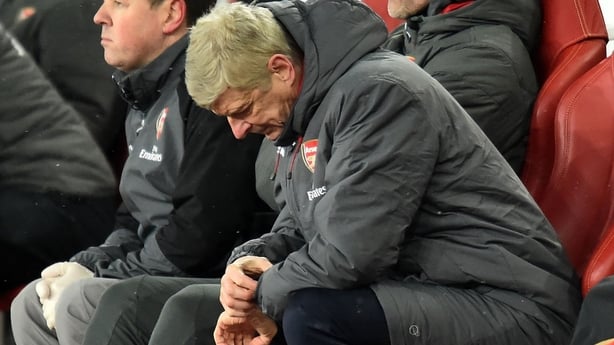
RTÉ commentator George Hamilton believes the high point in the Wenger reign in north London was in 2006 - the year the Gunners qualified for a Champions League final and moved to the Emirates Stadium.
Hamilton told the RTÉ Radio's News at One: "Since that marvellous night in Paris (Champions League final loss to Barcelona) that went all sour for them, they only have three FA Cups to show for their efforts – those three in the last four seasons it must be said.
"That did not betoken an Arsenal revival because the FA Cup is not what it once was. Arsenal, under Wenger, were going nowhere pretty fast after a wonderful decade before they moved to the Emirates.
"It seemed the Emirates became something of a millstone."
Speaking in his column in The Sunday Times, Graeme Souness said: "If he’d left after his first decade in charge, a period that covered the three league titles he won, four FA Cups and the Champions League final loss to Barcelona, he’d be remembered as one of the truly great managers.
"His record over the past decade, in contrast, would have seen him sacked long ago at any of the other clubs in the top six. ‘Arsenal have been treading water, papering over the cracks by qualifying for the Champions League, and winning three more FA Cups.
It all begs the question as to when is the right time for a manager to go?
History has shown us that some get the timing right, while others just stick around too long.
Bob Paisley (Liverpool 1974-83)
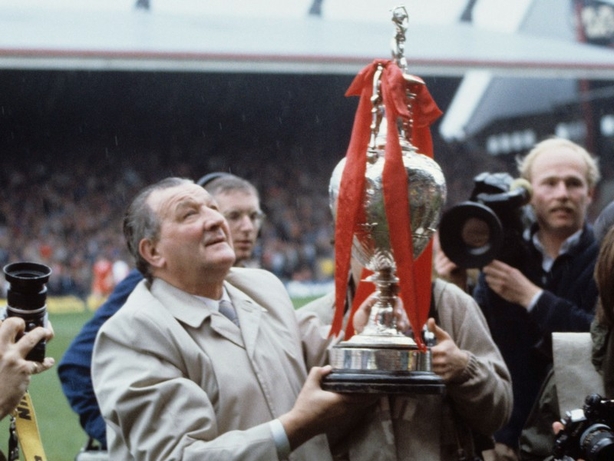
Paisley reluctantly took on the Anfield post after Bill Shankly's surprising decision to retire in July 1974. The Scot would later regret the timing of his departure and tried to continue his relationship with the club by turning up for team training at Melwood. He eventually had to be asked to leave.
Paisley's nine years at the helm brought much success for the Reds, highlighted by three European Cup victories. In all, the Durham native won 20 trophies by the time he retired in 1983. The final season saw another League title and League Cup in the Liverpool trophy room.
Paisley stepped away with no regrets, handing over the reins to Joe Fagan, who in the following season landed more domestic and European success for the Merseysiders.
However, following Kenny Dalglish's appointment as player-manager in 1985, Paisley returned in an advisory role to the new boss for two seasons.
During that period, he was also linked with the vacant Republic of Ireland post following Eoin Hand's resignation. It is widely believed that he was the preferred choice of the FAI.
Bill Nicholson (Tottenham 1958-74)
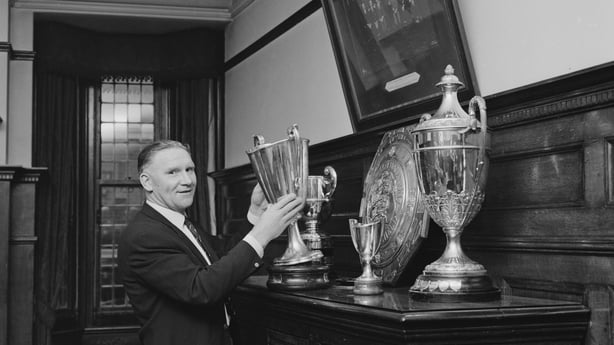
Tottenham were the first team to complete the league and cup double in 1961. Bill Nicholson, who also played for the north London club, was the man at the helm. For the following 10 years, Spurs picked up more silverware in the shape of three more FA Cups, UEFA Cup and European Cup Winners Cup successes.
Just before the start of the 1974-75 season, Nicholson, on feeling that he had no more to give, offered his resignation. He would, however, return to the club as an advisor in 1976, working alongside new manager Keith Burkinshaw.
Jim McLaughlin (Dundalk 1974 -83, Shamrock Rovers 1983-86, Derry City 1986-91)
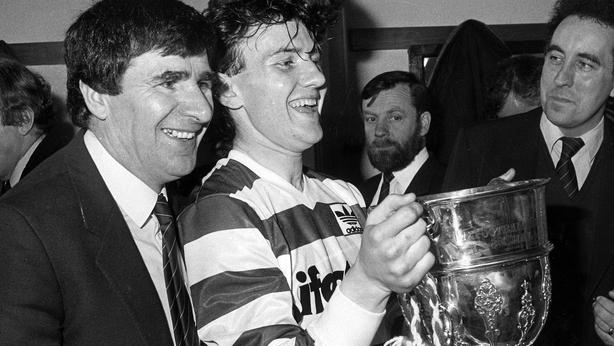
The Derryman is the most decorated manager in the League of Ireland. His arrival in Dundalk in late 1974 sparked a golden period for the Co Louth club as evidenced by three League titles and three FAI Cup wins. In 1979, the Lilywhites put it up to Celtic in the European Cup, losing 3-2 on aggregate in the last 16.
McLaughlin's winning formula saw Shamrock Rovers rule the roost for three seasons in the 1980s. Some would argue that it was the best ever side to grace the domestic league as they went to complete a hat-trick of league wins to go alongside two FAI Cup victories.
A year before the fortunes of Rovers were about to change following the closure of Miltown, McLaughlin sought out another challenge and returned home to manage Derry City. A season on from their League of Ireland bow, the Candystripes, under McLaughlin's stewardship began to make their mark in the top flight and would eventually achieve a domestic treble in the 1988-89 season.
McLaughlin left Derry in 1991.
Alex Ferguson (Manchester United 1986-2013)
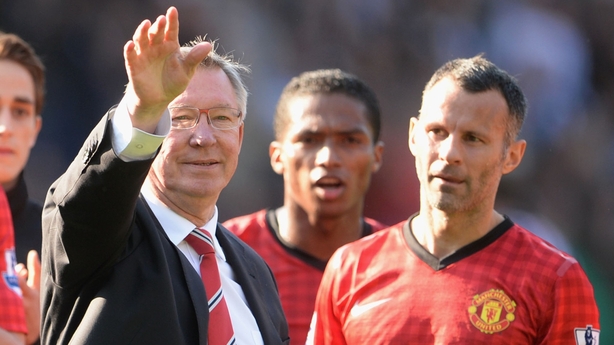
The Scot arrived, knocked Liverpool off their perch, and proceeded to win trophy after trophy
In 2013, he called time on his lengthy Old Trafford tenure after delivering a 13th league title. Yes, it was a good juncture for Ferguson to step aside, but not so good for Manchester United as a whole.
David Moyes' appointment was ill-judged and Jose Mourinho's vision of the game is viewed by many as out of line with the United tradition, despite landing Europa League and FA Cup titles in his first year in charge and guiding the Red Devils back into the Champions League.
Brian Clough (Nottingham Forest 1975-1993)
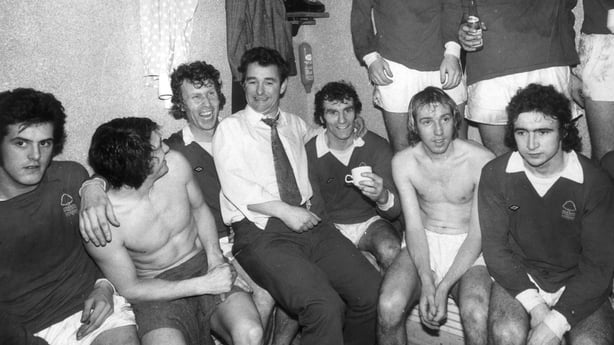
Taking an unfashionable club like Nottingham Forest all the way to European Cup glory, not once, but twice and constructing team that were pleasing on the eye, was surely Clough's greatest achievement. Like Arsene Wenger, the best days were front loaded, with two League Cup wins in 1989 and '90 still keeping Cloughie relevant.
He always lamented the fact that he never got to win an FA Cup, with Forest losing to Spurs in the '91 final. At that point, Clough's behaviour was already getting more and more erratic. The ravages of drink were taking its toll.
A once great manager cut a somewhat pathetic figure when he stepped away in May '93, with his beloved Forest relegated from the Premier Division.
Jack Charlton (Republic of Ireland 1986-1995)
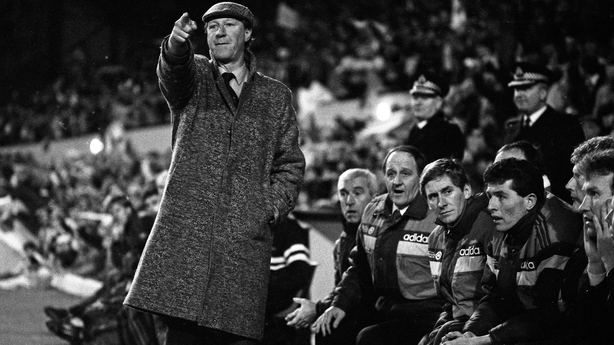
In getting Ireland to three major tournaments, 'Big Jack' will always be remembered fondly in this country. Football purists however may hold a different view.
His final campaign, that of the qualifiers for Euro 96, did not end well for him or his squad as the Netherlands ran amok in that Anfield play-off.
The Irish looked leggy and well off the pace on that December night. The writing, however, was well on the wall before that following on from the 0-0 in Liechtenstein and back-to-back defeats against Austria.
Charlton had clearly run out of ideas and could rightly be accused of being too loyal to some of the older players.
The England World Cup winner would not manage again after he and the FAI parted ways just before Christmas '95.
Gerard Houllier (Liverpool 1998-2004)
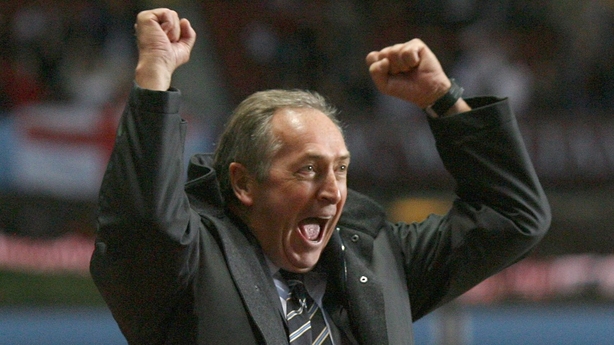
The Frenchmen delivered a 'treble' for the Pool in 2001 and a year later oversaw a second-place finish in the Premier League. Houllier was given much money to spend on improving the squad that would push for the number one spot.
Acquisitions like El Hadji Diouf and Bruno Cheyrou failed to make their mark as so Liverpool continued to lack a creative spark.
At the end of the 2002-03 season, the club had missed out on a Champions League spot and would do so again in the following campaign. Houllier's philosophy was no longer having the desired effect. He eventually left Liverpool in 2004, probably a year later than he should have.


